Essential Workers Are Being Treated as Expendable
Farmworkers risk their lives so Americans can eat, but they receive little protection from the virus.
April 23, 2020
Thesis project by Wesaam Al-Badry paired with special report by Madeline Leung Coleman, in The Atlantic.
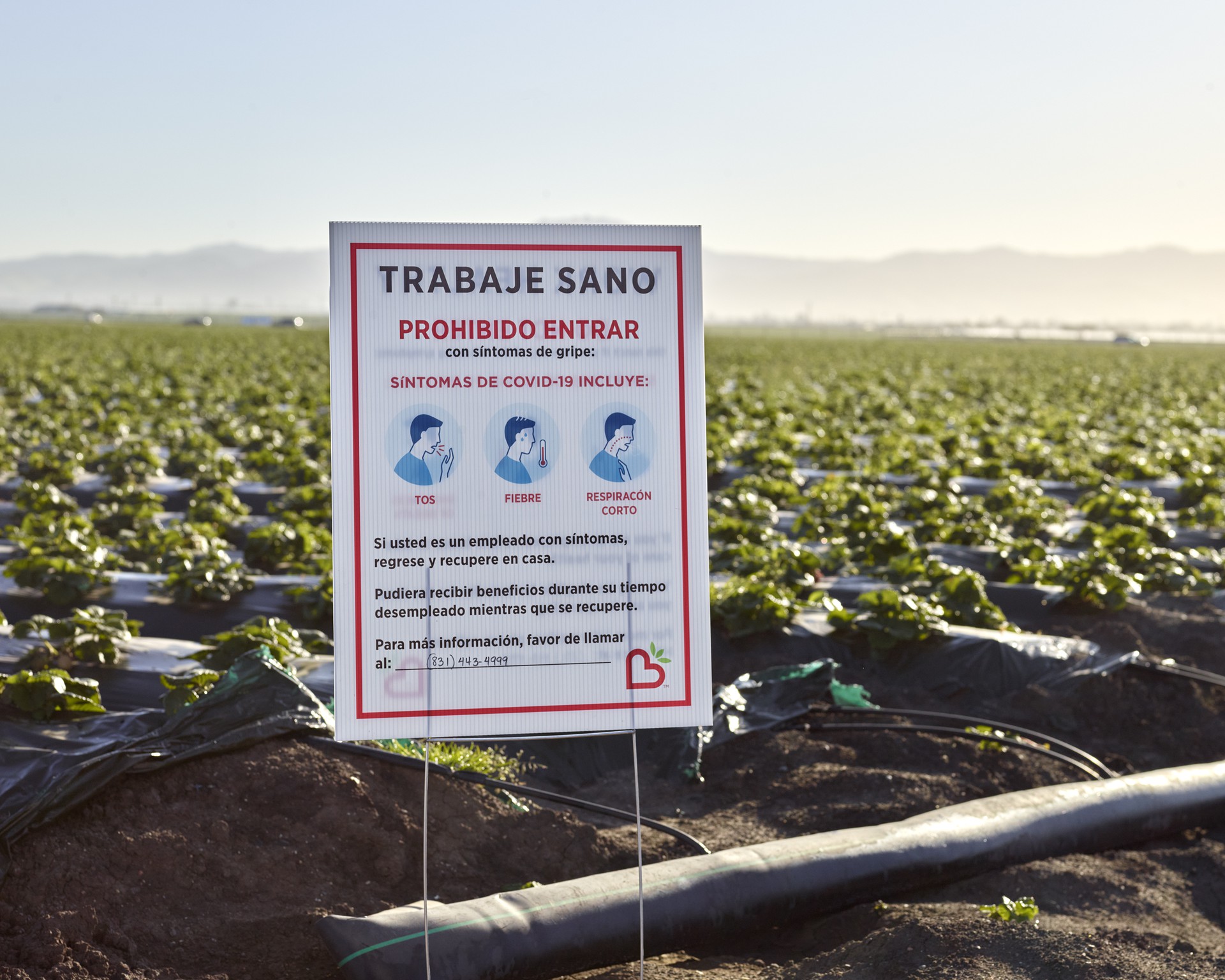
Farmworkers, top, pick, sort, and pack broccoli along a conveyor system at a farm in the Salinas Valley, California. The United Farm Workers union says that many companies are not providing protection for their workers during the pandemic, despite state health guidelines.
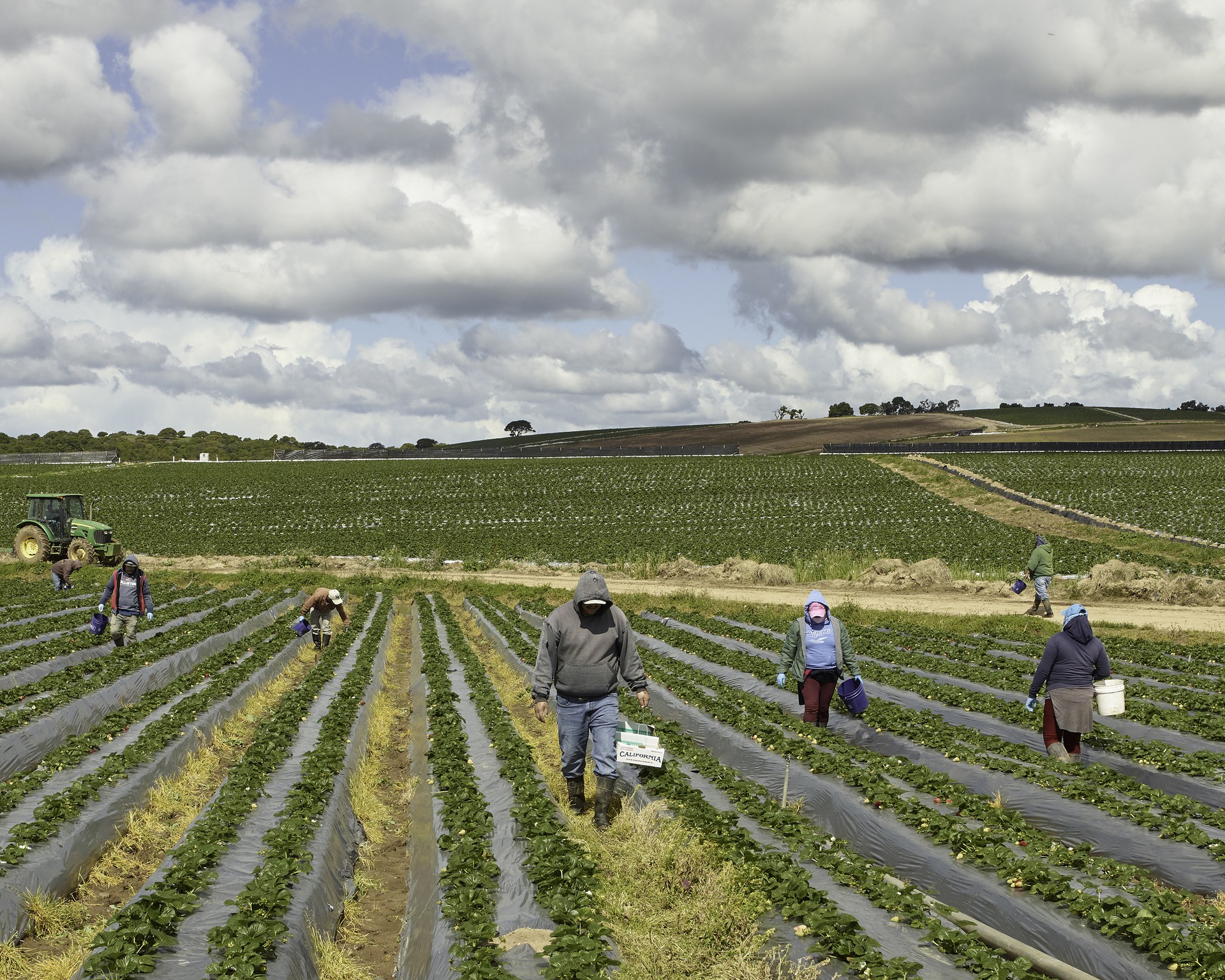
March and April is peak harvesting season in the Salinas Valley.
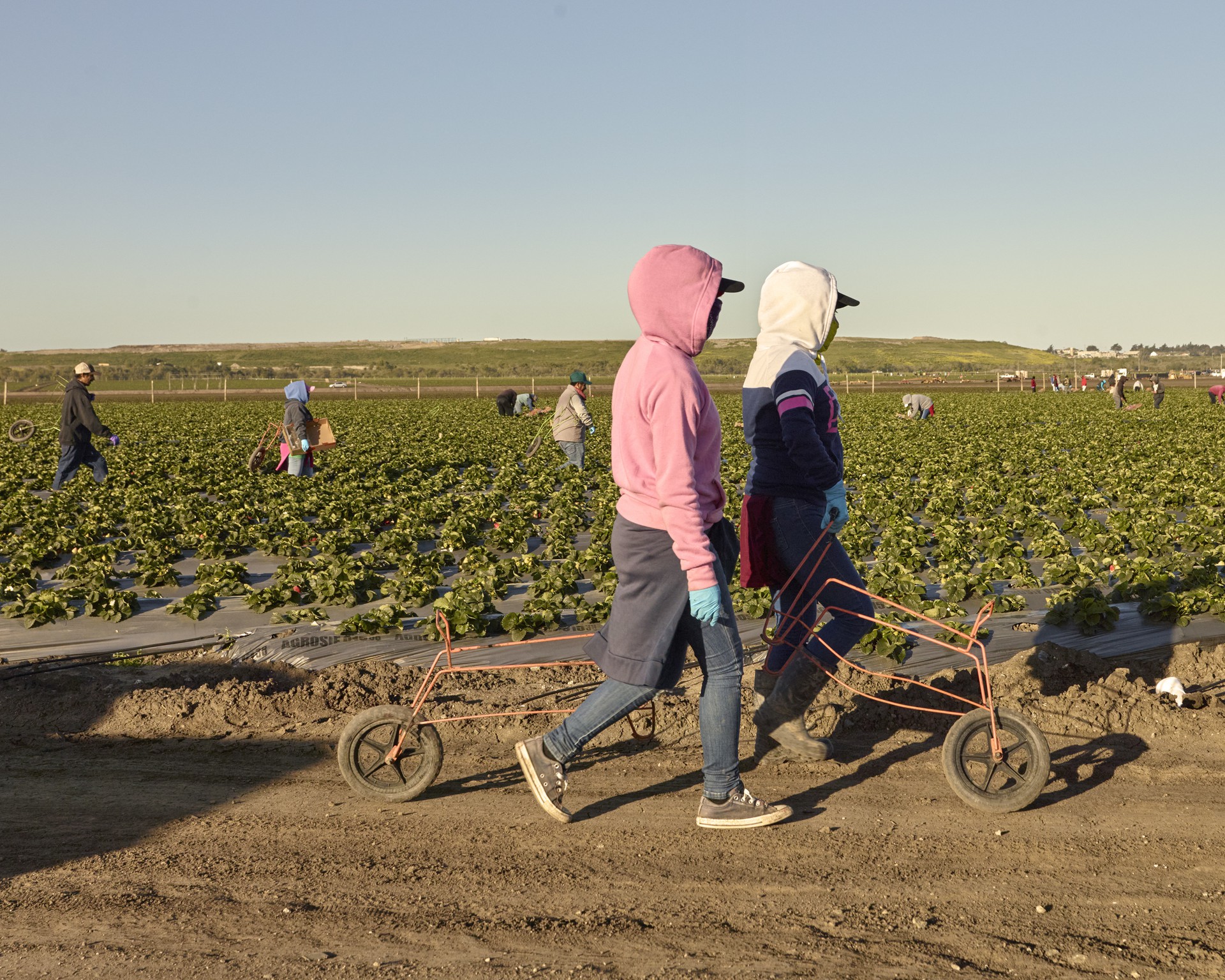
Many farmworkers wore bandanas to protect themselves from dust, pesticides, and the sun before the pandemic. These coverings have taken on another purpose now.
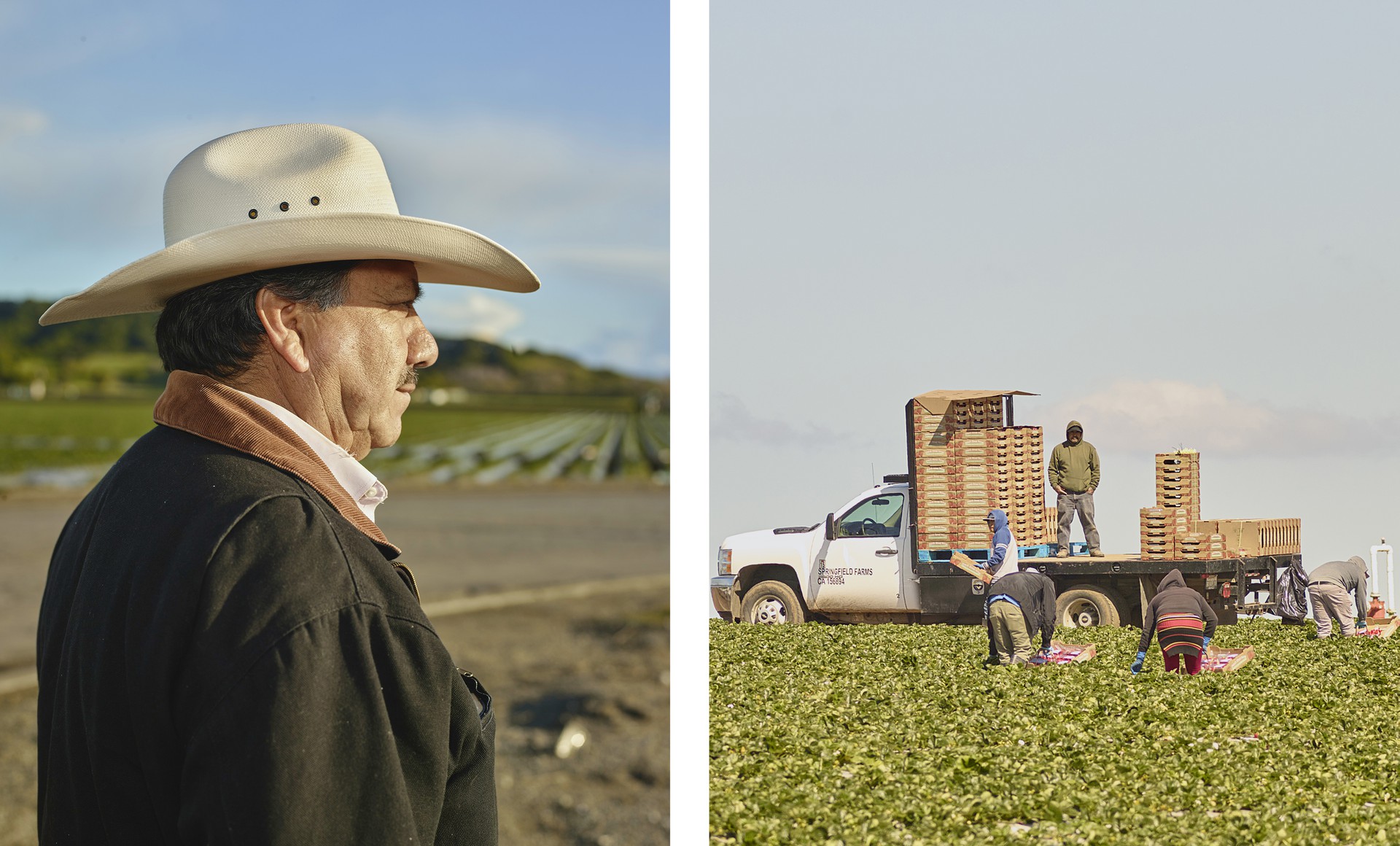
A man in Watsonville, California, left, waits to be called into the field during berry season. Workers pick strawberries in Salinas, right.
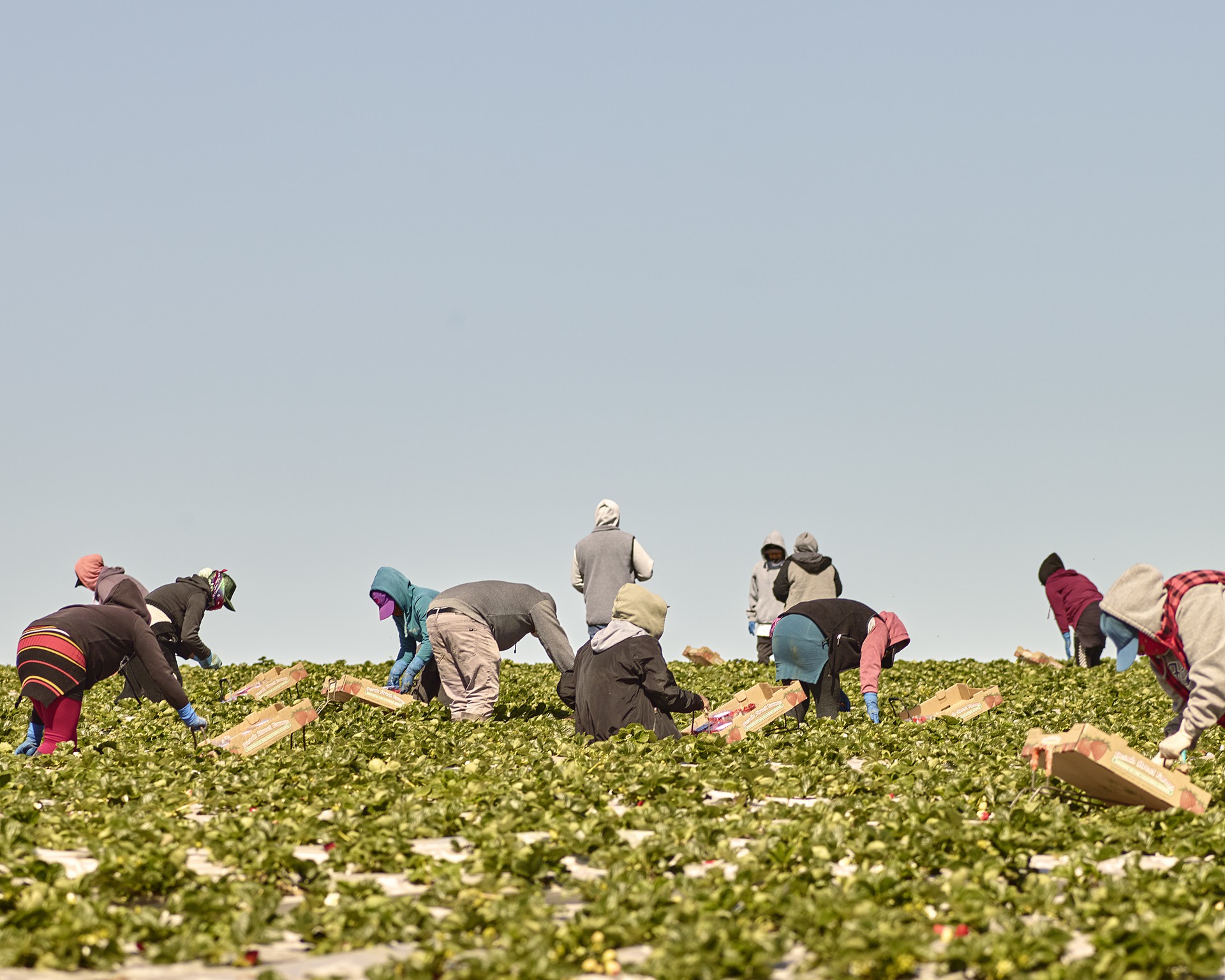
Farmworkers work closely together in the strawberry fields, making social distancing practically impossible.
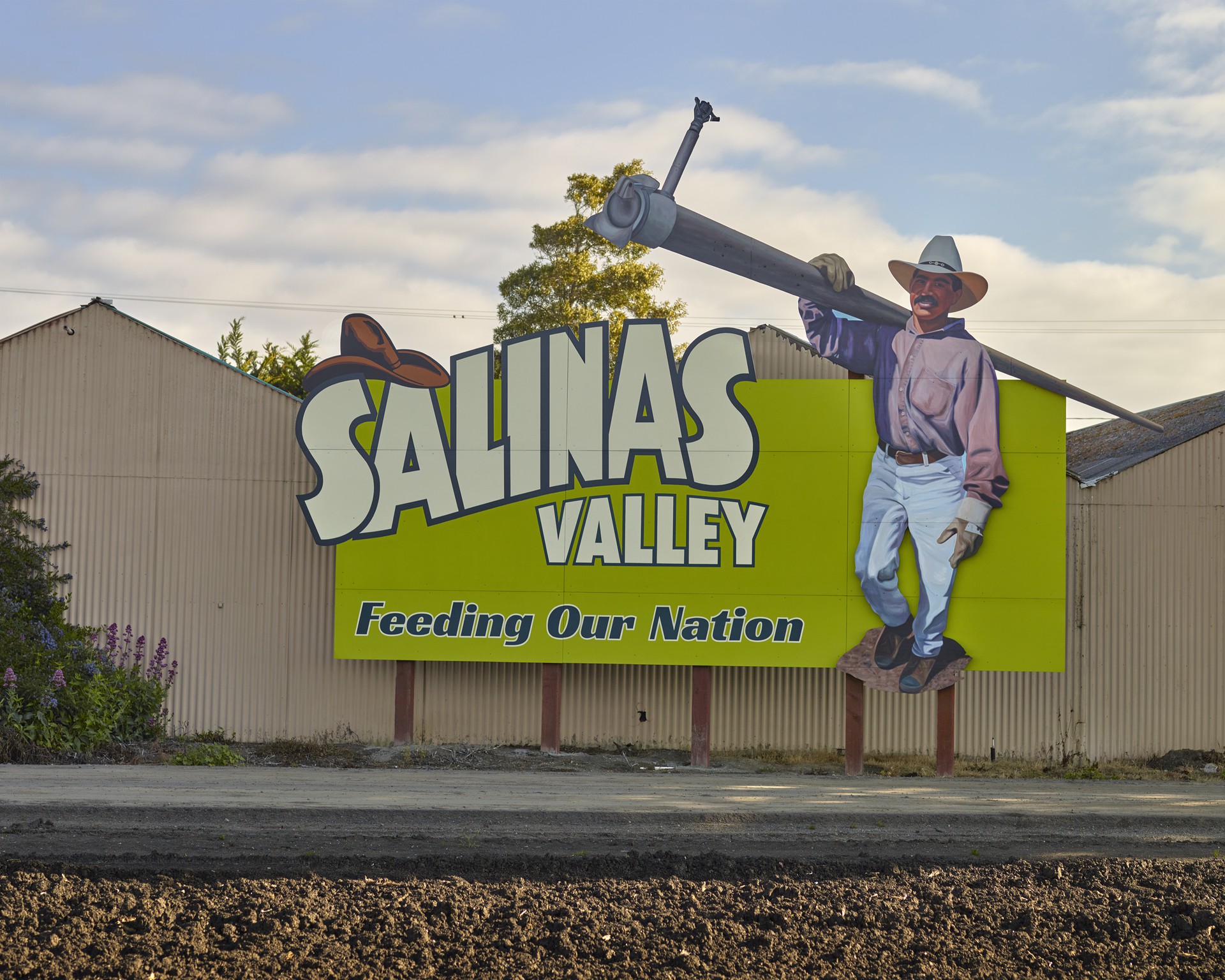
A sign, featuring a worker carrying an irrigation line, boasts of this area’s contributions to the country. Nearly 400,000 people work in California’s farms.
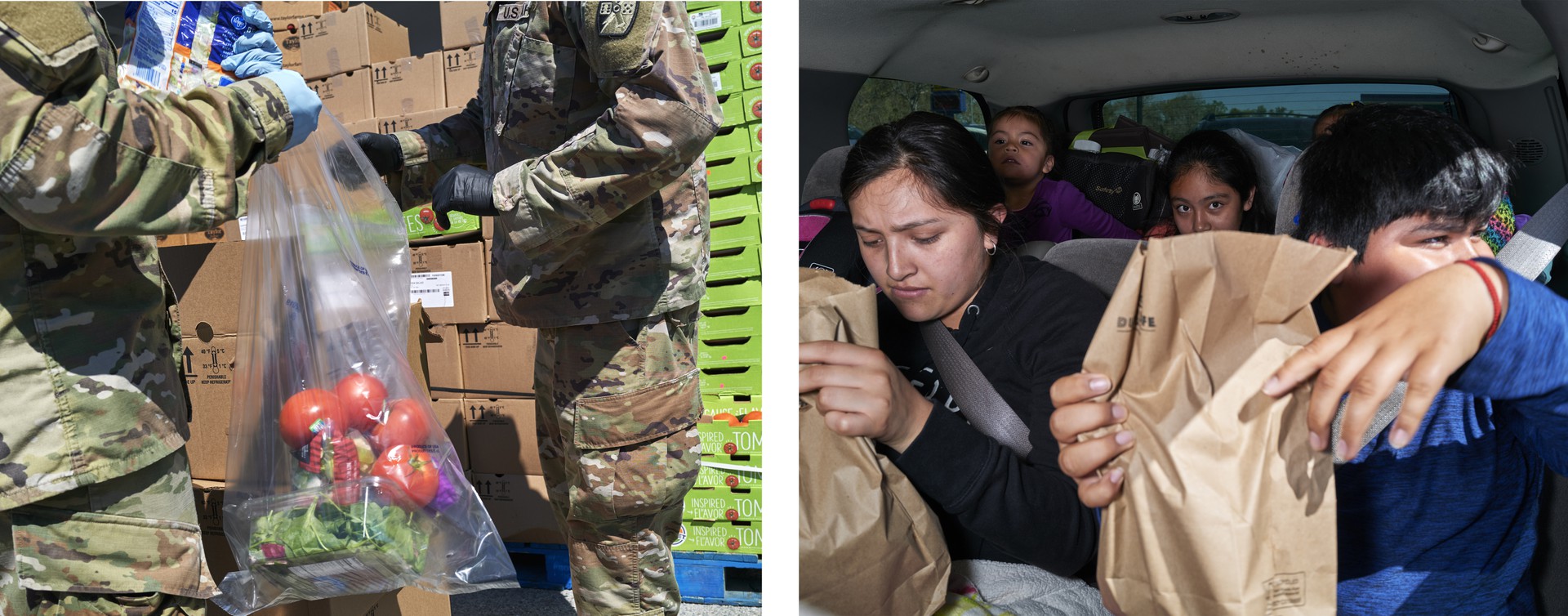
Stay-at-home orders forced some farmworkers to quit their jobs to care for their children. This economic hardship makes paying rent and buying groceries difficult, so some have turned to food banks, left, in Seaside, California, as well as free meals from school, right.
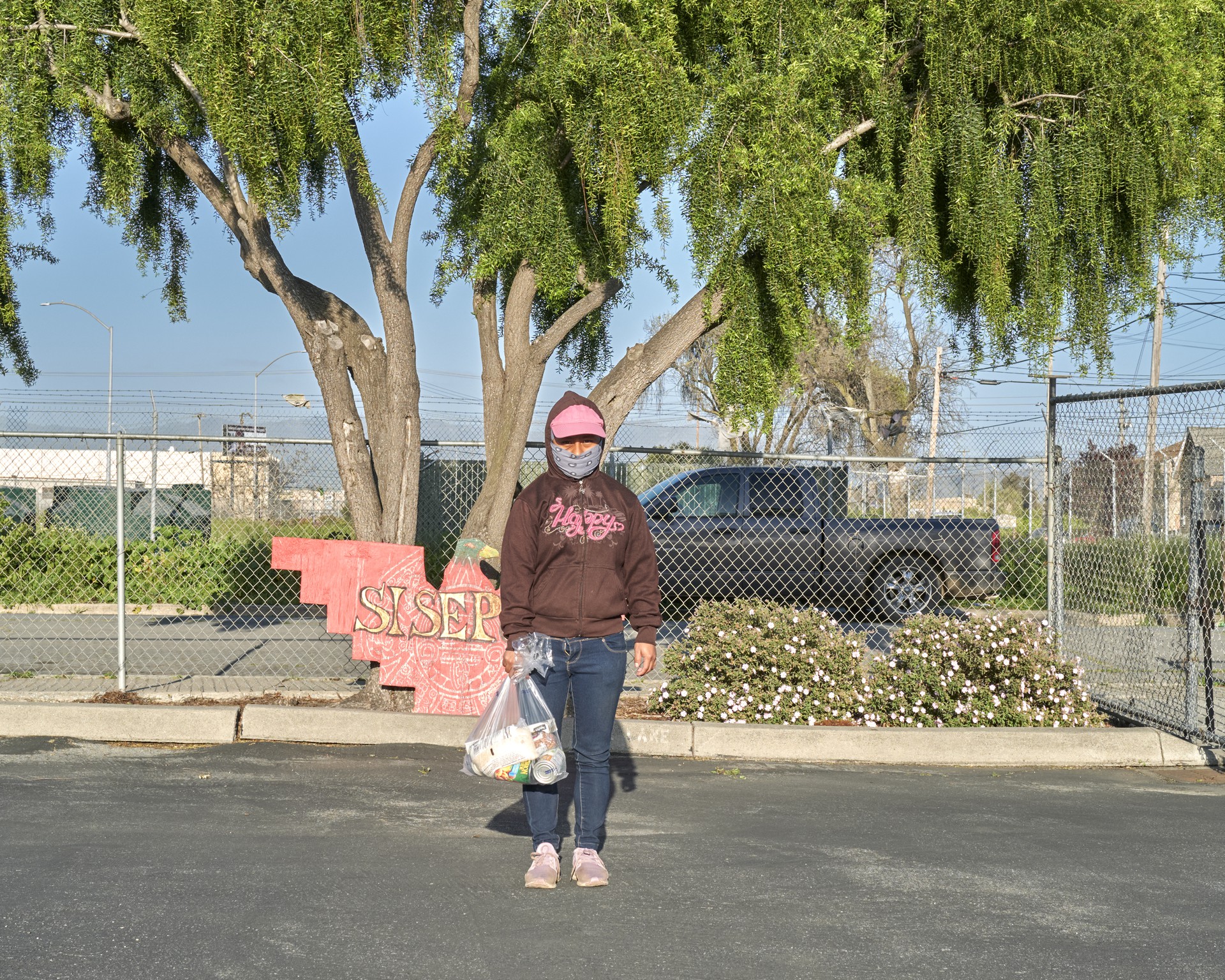
More than 50 percent of the country’s farmworkers are undocumented, which disqualifies them from government assistance. An undocumented farmworker picks up food from the United Farm Workers Foundation food bank in Salinas Valley.
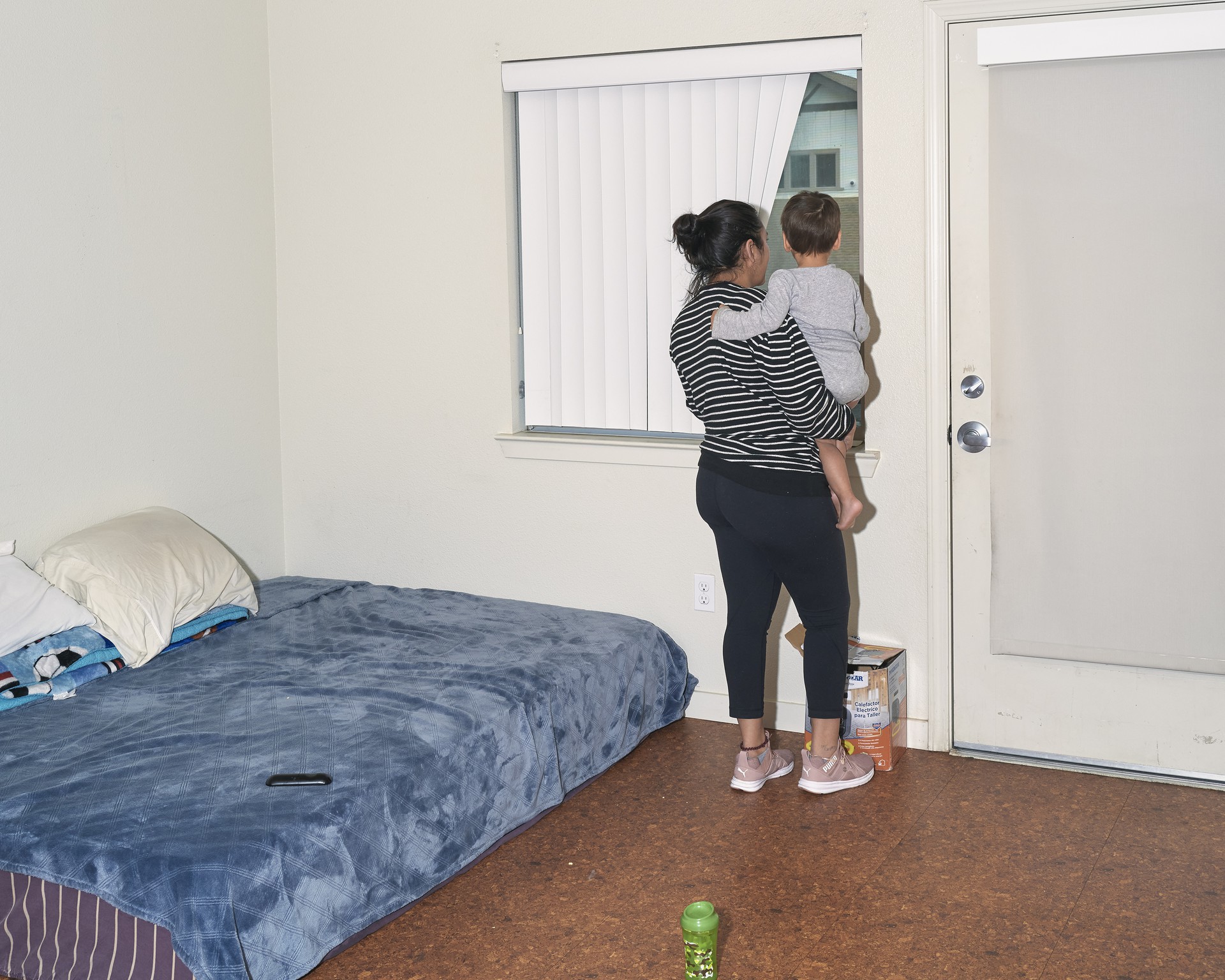
A mother, along with her three children and partner, lives in company-owned affordable housing, but is now facing eviction.
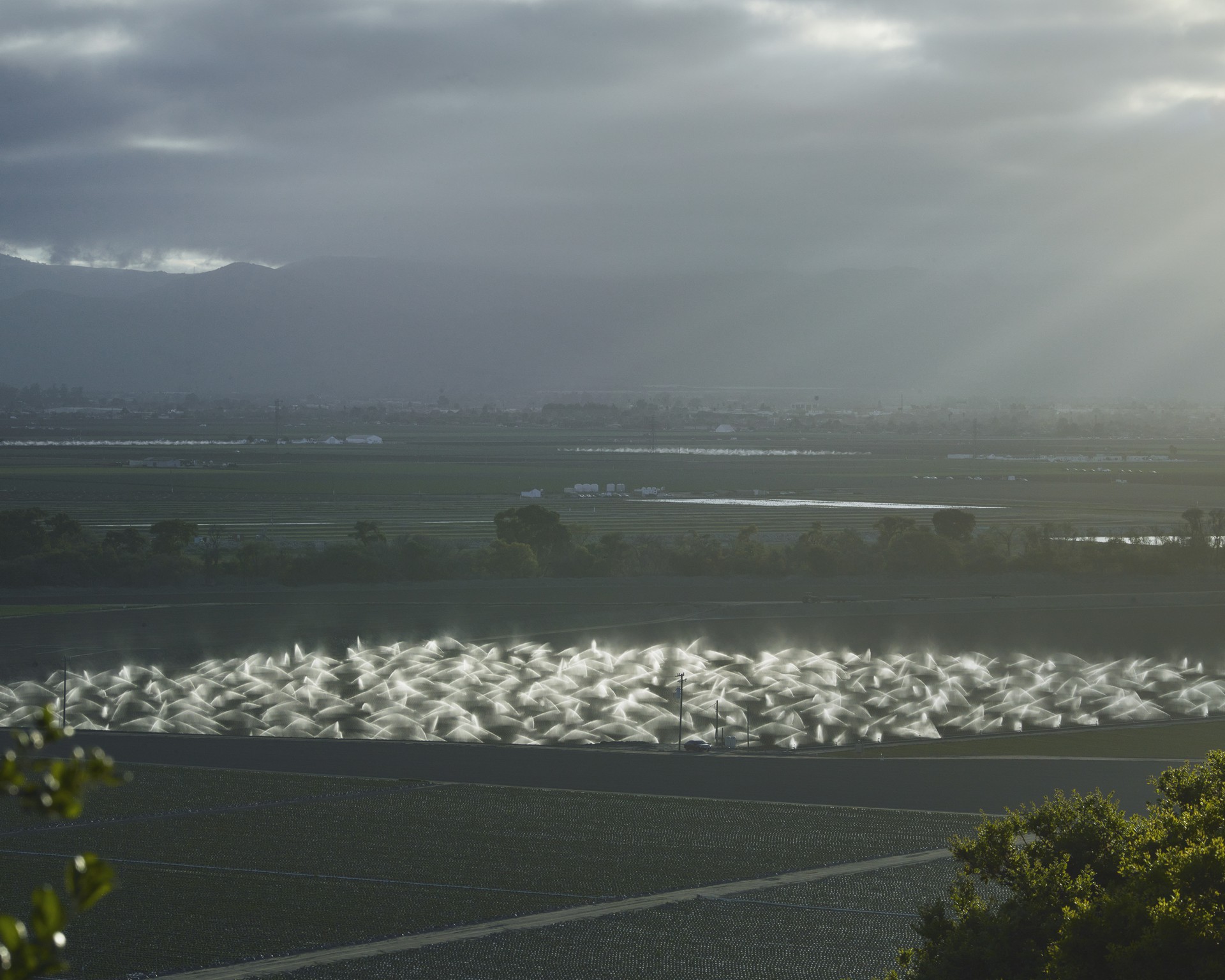
“The contradiction here with both state government and federal government historically is that farmworkers are excluded from many of the protections that other workers have,” said Torres of the UFW Foundation. “And yet, they are the individuals who provide our food security in this country. That irony is being exacerbated now.”


